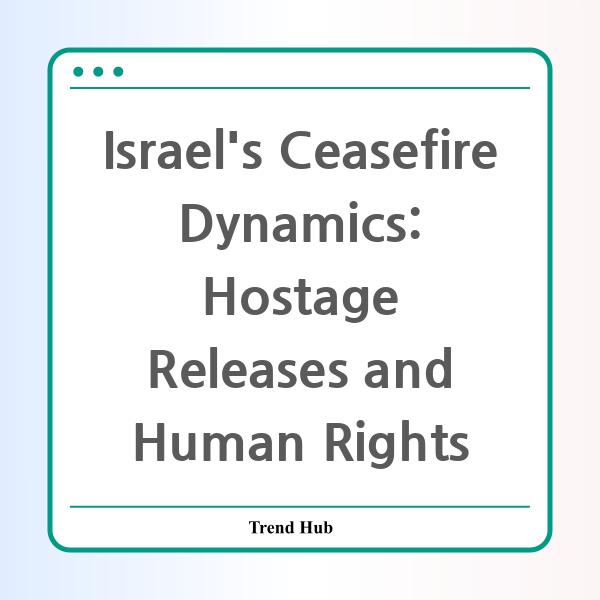* This website participates in the Amazon Affiliate Program and earns from qualifying purchases.

The ongoing conflict in Israel and Gaza continues to draw attention and evoke strong emotions worldwide. Recently, the parading of hostages' bodies in Gaza by Hamas sparked outrage from the United Nations rights chief, who described the act as abhorrent and a violation of international law. This situation raises pressing questions: What does this mean for the future of hostage negotiations? And how do these events reflect broader issues in the region?
In a shocking display, Hamas handed over the bodies of the Israeli hostages to the Red Cross amid a public ceremony surrounded by armed militants. The children of one of the deceased were among the youngest victims of this tragic conflict. Not only did their ceremony highlight the grim realities of war, but it also brought the issues of human dignity and respect for the deceased to the forefront of international discourse.
The handling of these remains was labeled as a violation of the principles of dignity, as stated by the U.N. rights chief, Volker Turk. He emphasized the prohibition against cruel and inhuman treatment in the exchange of deceased remains. His comments were directed at the spectacle surrounding the handover, which drew large crowds amidst the ruins of Gaza. The International Committee of the Red Cross reiterated that such operations should be conducted in private, safeguarding the dignity of the deceased and their grieving families.
Furthermore, the hostage release represented a critical moment in the ongoing negotiations between Israel and Hamas. The American-Israeli hostage, who spent nearly 500 days in captivity, only learned of his wife's survival and the birth of their third child shortly before his release. This personal story emphasizes the profound emotional toll on families affected by geopolitical conflicts. His father detailed the prison-like conditions his son endured, including minimal medical treatment and an information blackout, heightening fears for the safety of his loved ones.
As negotiations continue regarding future hostage exchanges, the humanitarian aspect of this conflict cannot be overlooked. The release of hostages like the American-Israeli man ties into complex and sensitive discussions about the conditions of Palestinian prisoners and the ongoing military operations in Gaza. With each phase of the ceasefire agreement carrying the potential for future stability or further escalation, the world watches closely.
Notably, the ceasefire negotiations are set against a backdrop of intense violence and tragic loss of life. Since the conflict escalated in October 2023, reports indicate that over 48,000 people have died in Gaza, underscoring the urgency of reaching a sustainable solution. The complexity of these negotiations, which aim for the release of more hostages in exchange for Palestinian prisoners, reflects the multi-layered nature of the conflict. The stakes are incredibly high, with many families anxiously waiting for news of their loved ones.
As we reflect on these recent events, it reinforces the importance of dialogue and understanding in resolving conflicts. Both sides have suffered immensely, and the tragic tales of families torn apart by war illustrate the profound human cost of political struggles. Ultimately, the goal should not only be the release of hostages but also the pursuit of long-lasting peace in the region.
* This website participates in the Amazon Affiliate Program and earns from qualifying purchases.